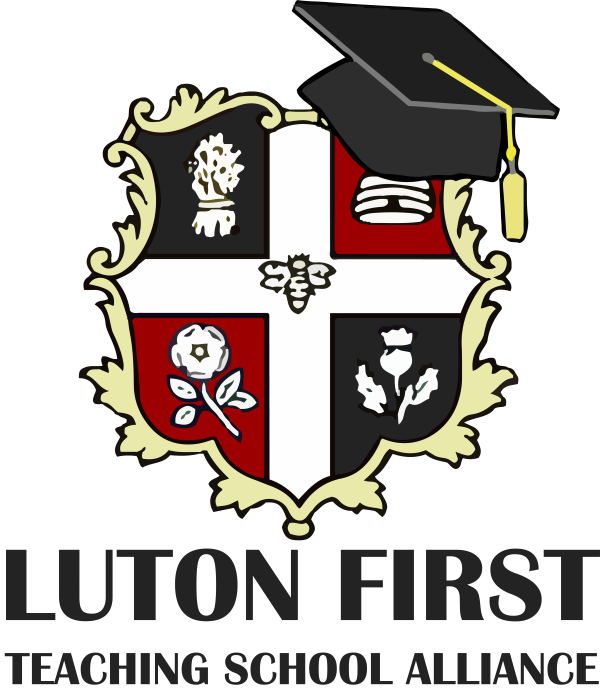|
Year 3
|
Essential knowledge and skills
|
Year 4
|
Essential knowledge and skills
|
|
Autumn 1:
What is the trinity and why is it important to Christians?
|
- Understand that water has a symbolic meaning; cleansing, refreshing, life-giving, beautiful, dangerous, still, flowing, reflective, thirst-quenching, fun etc.
- Water is used in Christian baptism - because of its symbolic meaning.
- Understand why Jesus was baptised – he was not just a good man, but God who came to Earth to rescue humanity.
- A gospel – a life story or biography of the life and teaching of Jesus.
- Christians believe God is three in one – The Holy Trinity – Father, Son and Holy Spirit.
|
Autumn 1:
How is faith expressed in Hindu communities and traditions? (Dharma)
|
- The word ‘Hinduism’ is a European word for describing a diverse religious tradition that developed in what is now northern India.
- People within the tradition itself often call Hinduism ‘Sanatan Dharma’ – which means Eternal Way and describes a complete way of life.
- Introduce the word dharma - separation between their religious, social and moral duties.
- Special objects you might find in a Hindu’s home include: murtis; a family shrine, statues and pictures of deities; puja tray including incense, fruit, bells, flowers, candles; some sacred texts such as the Bhagavad Gita; Aum symbols.
- Hindu rituals might include: daily puja, blessing food, arti ceremony, singing hymns, reading holy texts, visiting the temple.
- Hindus show their traditions within their faith communities by visiting the temple/mandir; performing rituals including prayer, praise such as singing hymns/songs (bhajans); offerings before the murtis; sharing and receiving prashad (an apple or sweet) representing the grace of God; looking at Hindu iconography
- Hindus celebrate Diwali - recall the story of Rama and Sita
- Light is used in Hindu celebrations to represent good overcoming bad and temptation; the festival is an invitation to Lakshmi, goddess of prosperity and good fortune.
- Other Hindi celebration include: Holi, or Navaratri/Durga Puja
- Understand how Hindus live in Britain today.
|
|
Key words
|
symbolic, cleansing, refreshing, life-giving, flowing, reflective, Christian, baptism, humanity, gospel, Holy Trinity, Holy Spirit.
|
Key words
|
Hindu, European, mandir, murtis, prashad, Divali, iconography, temple, arti, ceremony, Holi, Navaratri/Durga Puja, temptation, bhajans, hymns, ritual, ‘Sanatan Dharma’, diverse, Bhagavad Gita, Aum, symbols, shrine, incense, puja, deities.
|
|
Autumn 2:
How do festivals and family life show what matters to Jewish people?
|
- Abraham and God created a covenant
- Rosh Hashanah is the Jewish new year festival; Jews examine their deeds from the part year and look to make a fresh start; find out about shofar and eating sweet foods, tashlich.
- Yom Kippur is the ‘Day of Atonement’: a day of fasting and praying for forgiveness.
- These significant dates explore the main themes of repentance, deliverance and salvation; for Jews this is both solemn (because of the reality of sin) and joyful (God’s readiness to forgive). (Note that some Jewish people write ‘Gd’, because they wish to respect the name of God and do not want it to be erased or defaced.)
- Pesach/Passover: The story of the Exodus is remembered at the festival of Pesach and celebrated in Jewish homes, including the preparation and the Seder meal.
- The important themes of Pesach (e.g. freedom, faithfulness of God, the Jewish people’s place as God’s Chosen or Favoured People – rescued from slavery to demonstrate this, brought into the Promised Land).
- Know that after their escape from Egypt, the Jewish people were given the Ten Commandments.
- Jewish people use prayer and blessings throughout the day e.g. the Talmud teaches that Jews should say ‘thank you’ 100 times a day! The Siddur prayer book contains numerous ‘Baruch atah Adonai’ prayers – ‘Blessed are you, King of the Universe’.
- Jewish family life and festivals encourage a reflective approach to living
|
Autumn 2:
How is faith expressed in Sikh communities and traditions?
|
- Sikhs believe in one God; a key text ‘Mool Mantar’ describes the Sikh God as ‘Waheguru’, the wonderful Lord. Sewa is the idea of service, human equality and dignity.
- Sikhs believe in the Ten Gurus through stories and teachings. For example, Guru Nanak’s calling to preach, the story of the Milk and the Jasmine Flower, Guru Nanak and the Needle. The forming of the Khalsa under Guru Gobind Singh; the collecting together of the first Sikh scriptures, ‘Adi Granth’ by Guru Arjan; the celebration of Guru Nanak’s birthday in the UK.
- Sacred words are important, especially the Guru Granth Sahib for Sikhs – understood as a living Guru. Guru Granth Sahib may provide inspiration or guidance to a Sikh.
- The Sikh community is important. For example, the Khalsa, wearing of the Five Ks, worship in the gurdwara, eating together in the langar and serving others.
- The five main things that show Sikh spiritual ideas at a gurdwara might be: the Guru Granth Sahib, signs of respect, a place where everyone can eat for free, a bedroom for the Guru, a community centre.
- The Golden Temple of Amrtisar is a centre and embodiment of Sikh spiritual ideals and a place to visit and be inspired.
|
|
Key words
|
Abraham, God, covenant, Rosh Hashanah, Jewish, tashlich, shofar, Yom Kippur, Day of Atonement, holy, Jewish new year, repentance, regret, deliverance, salvation, sin, evil Pesach/Passover, celebration, freedom, Jews, slavery, Egypt , Exodus, Moses, Israelites, Egypt, Seder, Ten Commandments, Mount Sinai, Talmud, Siddur, prayer book.
|
Key words
|
· Guru Granth Sahib, respect, embodiment, spiritual, inspired, temple, Gudwara, Sikh, Khalsa, preach, scriptures, ‘Mool Mantar’, God, ‘Waheguru’, Lord, Sewa, service, human equality, dignity, Guru Gobind Singh, Guru Nanak, guidance, langar, spiritual, community.
|
|
Spring 1:
Where, how and why do people worship?
|
The concept of worship suggests it is the thing we love the most.
- In different religions, worship is an activity expressed in many parts: community, music, prayer, ritual, symbol, shared food, God and other people.
- Worship can be private or shared; daily, weekly or occasional.
People use places of worship to seek peace, to think deeply, to be part of a community or to seek the presence of God.
- Worshippers choose to attend a church, mosque, synagogue etc.
- Christians: using bread and wine to remember Jesus in the Prayer/music of different styles used in worship.
- Muslims: the Five Daily Prayers/Friday prayer at the mosque/the Shahadah expressed in calligraphy and art.
- Jewish people: worship on Shabbat at home with family/worship in the synagogue/music used in worship.
- Sikhs: listening to the words of Guru Granth Sahib at the food at the langar as an act of devotion/personal prayer.
- Some non-religious people do not join in with religious worship. They might use meditation, kindness and thoughtfulness, which are the non-ways of doing something similar.
|
Spring1:
How do festival and worship show what matters to a Muslim?
(Ibadah, the Muslim concept of worship)
|
- Many Christians say Jesus was raised to new life to bring in a new ‘kingdom’ where God rules in people’s lives.
- The Bible says that Jesus went to heaven after his resurrection, leaving his disciples behind. They wanted to show everyone that God rules on Earth. The story says God sent his Holy Spirit to empower the disciples.
- Know the story of the Pentecost (Acts 2:1–15, 22 and 37–41). In the final part of the chapter, Acts 2:41–47, 3,000 people accept Jesus as king of their lives, and join the ‘Kingdom of God’.
- Christians think the Holy Spirit is important; they might say the Spirit of God is like a battery: Christians can’t do God’s work and live in God’s way without the Holy Spirit’s power.
- Since Pentecost, Christians have been trying to make the world look more like the Kingdom of God. Christians say the Lord’s prayer to worship God and his kingdom.
- Pentecost is the Church’s birthday.
- Some people do not want to have God as ‘king’ in their life and want to make up their own minds about how to live.
- Christians believe allowing God to rule in their lives is a good thing, and is a thing which guides and comforts them
|
|
Keywords
|
Worship, God, community, prayer, Jesus, Muslim, Five Pillars, mosque, Shabbat, synagogue, Guru Granth Sahib, worship, langar, devotion, meditation, thoughtfulness, kindness
|
Keywords
|
Kingdom, Holy Spirit, empower, Pentecost, Lord, worship, rule, guidance, comfort,
|
|
Spring 2:
Why do Christians call the day Jesus died ‘Good Friday’?
|
· Christians believe humans are separated from God because they all sin – that is, they prefer to go their own way rather than God’s.
· Most Christians say that Jesus came to show people how to live a life of love and obedience – saving or rescuing them by helping them to live God’s way.
· Some Christians say Jesus did more – that he actually died to pay the penalty for all people’s sin.
· The three important days in Holy Week: Palm Sunday (entry to Jerusalem: Matthew 21:7–11), Good Friday (Jesus’ death: Luke 23:13–25, 32–48) and Easter Sunday (Jesus is raised to life: Luke 24:1–12). These three parts of the story provoke hope, sadness and joy.
· Christians believe that Jesus shows them how to live a life that pleases God, a life of love for all – ‘saving’ them from going down the wrong path in life.
· Christians call the day Jesus died ‘Good Friday’ because they think that Jesus rose from his death, so Friday was not the end; and he opened up a way to heaven too, which Christians say is good news for all.
|
Spring 2:
For Christians, what was the impact of Pentecost
|
· Many Christians say Jesus was raised to new life to bring in a new “kingdom” here God rules people’s lives.
· The Bible says that Jesus went to heaven after his resurrection, leaving his disciples behind. They wanted to show every that God ruled on Earth. The story says God sent his Holy Spirit to empower the disciples.
· Know the story of the Pentecost (Acts 2:1-15, 22 and 37-41). In the final part of the chapter, Acts 2:1-15, 22 and 37-41). In the final part of the chapter, Acts 2:41-47, 3000 people accept Jesus as king of their lives and join the “Kingdom of God.”
· Christians think the Holy Spirit is important; they might say the Spirit of God is like a battery: Christians cannot do God’s work and live in God’s way without the Holy Spirit’s power.
· Since Pentecost, Christians have tried to make the world look more like the Kingdom of God. Christians say the Lords Prayer to worship God and his kingdom. Imagine what God might be like.
· Pentecost is the Church’s birthday.
· Consider some people may not want to have God as “king” in their life and want to make up their own mind about how to live.
· Christians believe allowing God to rule in their lives is a good thing, and is a thing which guided and comforts them.
|
|
Keywords
|
Christian, God, human, son, obedience, Palm Sunday, provoke, death, Jerusalem
|
Keywords
|
Holy Spirit, Holy Trinity, Pentecost, Christians, God, King, Kingdom, Holy Spirit, empower
|
|
Summer 1:
What kind of world did Jesus want?
|
- Remind pupils that Jesus is revered in Muslim life as the Prophet Isa.
- Note that the word ‘gospel’ means ‘good news’; telling the story of the life and teaching of Jesus.
- A gospel is a kind of biography, and the writers made choices about what to include – they don’t tell everything he ever said and did (and not all Christians agree about whether they include the actual words of Jesus).
- Christians believe that Churches are one way of making the world like the one Jesus wanted: toddler groups or food banks; worship services or caring for the elderly; celebrating a baptism, a wedding or a funeral; reading the Bible or giving to charity, etc. These are all important to Christians.
- It is not only Christians who want a better world – so do people from other faiths and those with no religious faith.
- Imagine a day/week in the life of a church leader – what do pupils think will be involved? How much time is spent ‘fishing for people’? How will they show love for God and for their neighbour?
- What is good and what is challenging about Jesus’ teaching of love? Talk about what pupil’s think are the most important things all people can do to make a better world.
|
Summer 1:
What are the deeper meanings of festivals?
(Muslims, Jews, Hindus, Sikhs, non-religious celebrations)
|
Examples of festivals might include: Diwali, Eid-ul-Fitr, Passover and Vaisakhi.
- Six aspects of festivals: ancient story/modern community/sacred symbols/ rituals/ remembrance/ celebrating spiritual values
- Know that the meanings of stories underpin key religious festivals, which is why they are told every year, sometimes for thousands of years within a community.
- Believers express the meaning of religious festivals through symbols, sounds, actions, stories and rituals (which vary, but may include shared food, expressing devotion in worship in many ways and some ‘upside down’ moments, when ‘normal’ behaviour is reversed, for fun and learning).
- Contemporary celebrations in the UK might include New Years’ Day, Valentine’s Day and Remembrance Day.
- Understand the connections between stories, symbols and beliefs with what happens at Eid, Diwali, Pesach or Vaisakhi.
|
|
Keywords
|
revered, Muslim, Prophet Isa, Gospel, baptism, funeral. Christians, faith, religion, Jesus, Bible
|
Keywords
|
festivals, Diwali, Eid-ul-Fitr, Passover, Vaisakhi, symbols, rituals, devotion, behaviours, (Saint)Valentine, Remembrance, connections, beliefs
|
|
Summer 2:
Why do some people think life is like a journey? How and why do people mark the significant events of life? (Christians, Hindus, Muslims, non-religious people.)
|
- Explore and use the religious metaphor of life as a journey
- Consider the value and meaning of ceremonies that mark milestones in life.
- Explore the symbols and rituals used and the promises made; explore what meaning these ceremonies have to the individual, their family and their communities; reflect on the ongoing impact of these commitments:
- Christians: Baptists/Pentecostals celebrate ‘believers’ baptism’ or adult baptism. Compare this with Church of England and Roman Catholic celebrations of infant baptism. Roman Catholics celebrate first involving a time of learning, new responsibilities and acceptance of adulthood (there are many varied Hindu rituals for these things, of which the sacred thread ceremony is just one visible example).
- Jews: Bar/Bat Mitzvah for boys and girls aged 12 or 13 to become ‘son/daughter of the Commandments’.
- Consider whether and how non-religious people (e.g. pupils and families in your school who have no religious background; Humanists) mark these moments. Why are these moments important to people?
- Compare some different commitments held by believers in different religions – and by the pupils themselves.
- Think about the symbolism, meaning and value of ceremonies that mark the commitment of a loving relationship between two people.
- Work with the metaphor of life as a journey: what might be the signposts, guidebooks, stopping points or traffic jams? Do religious or spiritual teachings have an impact on believers on life’s journey?
- Create a map of the journey of a life of a Christian; communion and confession; Church of England and Roman Catholics celebrate confirmation.
- Hindus: a sacred thread ceremony marks the start of adult life and responsibilities for some Hindus,
|
Summer 2:
How and why do people try to make the world a better place?
(Christians, Muslims, Sikhs, non-religious people.)
|
People are not always as good as they could be.
- Christians believe God helps them through the Holy Spirit.
- Muslims also believe people do good and bad deeds and need God’s mercy.
- Religions suggest that people need help and guidance to live in the right way e.g. Ten Commandments (Exodus 20:1–21, Deuteronomy 5:1–22), the Two Commandments of Jesus (Mark 12:28–34) and the ‘Golden Rule’ (Matthew 7:12). Note that the Golden Rule is important in many traditions, including for Humanists.
- Some ideas and individuals help to inspire people to make the world a better place e.g. the Jewish teaching of Tikkun Olam (mending the world) and tzedaka (charity), the Muslim belief in charity (zakah), the lives of inspirational Christians (e.g. Desmond Tutu, Martin Luther King Jr, Mother Teresa, etc.)
- Other development charities include: Khalsa Aid - a Sikh charity, Sewa International - a Hindu charity. Many use the Golden Rule (which is common across many religions too), using reason and listening to conscience.
- How have they made the world a better place?
- Enable pupils to reflect on the values of love, forgiveness, honesty, kindness, generosity and service in their own lives and the lives of others, in the light of their studies in RE. How can these values become stronger in our lives and in the world?
|
|
Keywords
|
Metaphor, spiritual, journey, communion, confession, Hindu, sacred, commitment, relationship, symbolism, milestone, ritual, Baptists/Pentecostals, Bar/Bat Mitzvah, commandments, confirmation.
|
Keywords
|
God, Muslim, devotion, Holy Spirit, Ten Commandments, Golden Rule, Humanist, Jewish, Tikkun Olam, tzedakah, zakah, Sewa International, Khalsa Aid, Golden Rule, forgiveness, honesty, values, reflect, inspirational, Desmond Tutu, Martin Luther King Jr, Mother Teresa.
|
|
|
|
Year 5
|
Essential knowledge and skills
|
Year 6
|
Essential Knowledge and skills
|
|
Autumn 1:
What does it mean for Christians to believe that God is holy and loving?
|
- “If God…”. Ask pupils to put together some words to describe a divine being.
- Holy God, loving God. Biblical ideas of God – extracts from Bible texts - Psalm 103, Isaiah 6:1-5, 1 John 4:7-13. God is holy and loving.
- Belief in music from Christians – traditional and contemporary worship songs examining similarities and differences.
- Building to God’s glory – how difference parts of cathedrals express ideas about God as holy and loving.
- Get creative about God – symbols, signs and colours to represent qualities and attributes explored.
- God? – maybe not! Many people do not believe in God, so what kinds of guidelines for living might they draw up from own religion. Discuss Universal Human Values and Values-based Education.
- Pupils compare own experiences and discuss rules and laws in UK and in schools. Discuss rules and forgiveness.
- What could the world do with more of?
|
Autumn 1:
What helps Hindu people as they try to be good?
(Karma/ dharma/ samsara/ moksha)
|
- Recall learning about Brahman (god, Ultimate Reality) and atman (eternal self).
- Hinduism is very diverse: however, the idea of dharma karma, samsara and moksha are commonly held.
- Know the Hindu story from Mahabharata, ‘the man in the well’; the atman is trapped in the physical body and wants to escape the terrible dangers, but the human is distracted by trivial pleasures instead of trying to get out. This warns Hindus that they should pay attention to finding a way to escape the cycle of life, death and rebirth.
- Explore Hindu idea of karma – the law of cause and effect, and how actions bring good or bad karma.
- Explore Hindu ideas about the four aims of life (punusharthas): dharma – religious or moral duty; artha – economic development, providing for family and society by honest means; kama – regulated enjoyment of the pleasures and beauty of life; moksha – liberation from the cycle of birth and rebirth/reincarnation. Compare these with pupils’ goals for living. Connect with the idea of karma – pursuing these aims contribute to good karma; doing things selfishly or in ways that harm other living things brings bad karma.
- Hindus might describe life as a journey towards moksha. Hindu life is also part of a journey through different stages (ashramas). Look at the different dharma/duties Hindus have during the four ashramas: student, householder, retired person, renouncer.
- Hindu values and how they make a difference to Hindu life - ahimsa (non-violence) and satya (truthfulness). Connect these with ideas of atman/karma (all living beings have an eternal self/atman and so deserve to be treated well; learning the truth and speaking truthfully are ways of worshipping God).
|
|
Key words
|
holy, God, biblical, extracts, Bible, psalm, Isaiah, traditional, contemporary, cathedral, qualities, attributes, guidelines
|
Key words
|
Brahman, ultimate reality, atman, eternal self, Hinduism, diverse, dharma, kharma, Samsara, moksha, Mahabharata, atman, physical, distracted, trivial, escape, cycle of life, death, rebirth, economic, artha, moral duty, punusharthas, kama, reincarnation, selfishly, ashramas, renounce, ahimsa, non-violence, stya, truthfulness, worship.
|
|
Autumn 2:
Creation and science: conflicting or compleme-ntary?
(Creation)
|
- Read Genesis 1:1 – 2:3 - discuss contents and that text is scared to three religions, Judaism, Christianity and Islam. Why was it written?
- How was the world created? Some say it is a literal account (the Universe was created in six days), others that it is more a description of God and creation are like, rather than how creation actually happened.
- Explore the scientific account of cosmology (the beginning of the Universe) and evolution (the development of living beings)
- Discuss why some people might say science and belief are in conflict or are complementary when considering questions about the origins of the universe.
- Explore Christians who are also scientists – Jennifer Wiseman. How do they reconcile their faith and professional work?
- Look at the key question: ‘Creation and science: conflicting or complementary?’ Ask pupils to give a written response, giving good reasons, and a creative response to the ideas explored. They can use material from Christianity, non-religious ideas and ideas from other religions if they wish.
|
Autumn 2: How is faith expressed in Islam?
(Tawhid/ Iman/ Ibadah)
|
- There are two main Muslim groups: Sunni and Shi’a.
- Five Pillars as expressions of Ibadah (worship and belief in action), Shahadah (belief in one God and the Prophet of God); Salat (daily prayer); Sawm (fasting); and Zakah (almsgiving). Introduce Hajj (pilgrimage): what happens, where, when, why?
- Introduce the idea of ‘God-consciousness’, or taqwa – ‘mindfulness’. Talk about the Five Pillars in terms of being conscious of God, or mindful of God, moment by moment, daily, annually and over a lifetime.
- The festival of Eid-ul-Adha, at the end of Hajj, celebrated to recall Ibrahim’s faith being tested when he was asked to sacrifice Isma’il.
- Consider the significance of the Holy Qur’an for Muslims as the final revealed word of God, including how it was revealed to the Prophet Muhammad by the Angel Jibril, and examples of key stories of the Prophets (e.g. Ibrahim, Musa, Isa, Prophet Muhammad), noting how some of these stories are shared with Christian and Jewish people (e.g. Ibrahim/Abraham, Musa/Moses, Isa/Jesus).
- Explore how Muslims put the words of the Qur’an and the words and actions of the Prophet Muhammad into practice, and what difference they make to the lives of Muslims, e.g. giving of sadaqah (voluntary charity); respect for guests, teachers, elders and the wise; refraining from gossip; being truthful and trustworthy.
- Many Muslims say the words ‘Peace be upon him’ after saying the name of the Prophet Muhammad. This is sometimes abbreviated to ‘PBUH’ when written down.
|
|
Key words
|
Genesis, scared, Judaism, Christianity, Islam, literal, God, creation, cosmology, evolution, science, universe
|
Key words
|
Sunni and Shi’a, Sadaqah, Musa, Muslim, Prophet, Muhammad, gossip, Moses, Jesus, Qur’an, Ibrahim, Angel, Jibril, Isma’il, sacrifice, Eid-ul-Adha, festival, Hajj, consciousness, taqwa, pilgrimage, Shahadah, salat, sawm, fasting, prayer,
|
|
Spring 1:
Values - what matters most to Humanists and Christians?
|
- Talk about what kinds of behaviour and actions pupils think of as bad (examples from films, books and TV as well as real life). Rank some of these ideas – which are the worst, and which are less bad? Why?
- Reflect on the question: why do people do good things and bad things? Are we all a mixture of good and bad? Explore Christian belief about humans being made in the image of God (Genesis 1:28) and also sinful (the ‘Fall’ in Genesis 3).
- Talk about how having a ‘code for living’.
- Look at a Humanist ‘code for living’, e.g. be honest.
- Explore the meanings of some big moral concepts, e.g. fairness, freedom, truth, honesty, kindness, peace.
- Christian codes for living can be summed up in Jesus’ two rules: love God and love your neighbour - The Good Samaritan (Luke 10:25–37) and Jesus’ attitude on the cross (Luke 23:32–35).
- Peace – is it more valuable than money?
- Consider similarities and differences between Christian and Humanist values.
|
Spring 1:
Justice and poverty - does faith make a difference?
(Christians, Muslims, no-religious people.)
|
- Discuss fair and unfair in terms of wealth and poverty. Draw meanings from stories and teaching of Islam and Christianity which highlight justice and fairness for all people.
- There are Christian teachings of Jesus and Paul on values and justice and their meaning for Christians today. The Widow’s Mite (Mark 12:41–44), The Rich Fool (Luke 12:16–21), Two Great Commandments (Mark 12:28–34), All Equal in Christ (Galatians 3:28), The Fruit of the Holy Spirit (Galatians 5:22).
- Muslim teaching’s in the Qu’ran and Hadith: Muhammad overcomes hatred with kindness: the woman at the gates of Makkah; Third Pillar of Islam – zakah – giving wealth to those in need.
- Many of our major charities have religious origins, e.g. Christian Aid and Islamic Relief. Many others do not, e.g. Save the Children and Oxfam. Donors to any of these may or may not be motivated by religion.
- The Charities Aid Foundation publishes a report showing total donations in the UK, at around £10 billion annually, and analyses how this is distributed.
- All our major religious traditions originated in a world where inequality was taken as a natural part of life, and charitable giving was a way of making up for any sense of unfairness. Have modern societies found other ways of addressing the same problems? For example, there has recently been huge growth in food banks, because of the increasing number of families on very low incomes. Are these to be welcomed as an opportunity to exercise our generosity, or are there better ways of approaching the issue?
- ‘Does faith make a difference’ to practical, community-based work in the fight against injustice? Teachings in the Qur’an and Hadith: Muhammad overcomes hatred with kindness: the woman at the gates of Makkah; the practice of the Third Pillar of Islam – zakah – giving 2.5% of one’s wealth to those in need.
- Islam and Christianity are among many religions which encourage charitable giving as a way of compensating for the unfairness which seems to surround us.
|
|
Key words
|
Genesis, code for living, Samaritan, Humanist, Christian, attitudes
|
Key words
|
Christian, Jesus, Widow’s Mite, Great Commandments, Galations, Holy Spirit, Muslim, Islamic, Oxfam, donor, inequality, distribution, annual, analysis, society, foodbank, generosity, justice, Qur’an, Hadith, Muhammad, Makkah, Zakah, wealth, Pillars of Islam, compensate, charity
|
|
Spring 2:
How and why do some people inspire others? Examples of Hindus, Sikhs, Jews and Muslims.
|
Inspiring people: what does it mean? And what does it mean in religion? And who is a non-religious inspiring person?
- Explore what makes a person inspirational to others, identifying characteristics of a good role model. We are sometimes inspired by people who are good at one thing – sport, music or cookery, for example. But others are inspiring because they are good in a human and humane sense.
- Hindu religion: Pandurang Shastri Athavale (1920–2003) who changed India with campaigns for fairness, justice and love for the Earth. 120 million follow his ideas for justice, fairness and Hindu dharma today.
- Muslim religion: Malala Yousafzai is an Islamic campaigner for girls’ education and equality. Despite being shot by the Taliban, she went on to become the youngest-ever Nobel Peace Prize winner, and a movie of her life won many prizes.
- Sikh religion: Bhagat Puran Singh set up Pingalwara, a home for destitute people in Amritsar, inspiring a generation to Sikhi Sewa, after his own life was changed by friendship with a person with profound learning needs.
- Jewish religion: Rabbi Hugo Gryn, who survived the Holocaust and became a much-loved Jewish leader in the UK.
- Christian religion: Revd Dr Martin Luther King Jr, a civil rights campaigner in 1950s USA who was shot dead aged 39 after a lifelong struggle against racism.
- Marcus Rashford (British campaigner for school children and free school meals)
- Exploring inspiration: four key elements: Study the actions and words of an inspiring local person - John Bunyan. 1 Did this person follow the teaching of their scriptures? 2 Does this person encourage others to follow God in their religion? 3 What difference did this person make to others? Is there a movement inspired by their life? What is their ‘legacy’? 4 Did this person sum up their vision in some famous sayings or memorable quotes?
- Investigate one person from religion who is inspiring - retell that person’s life story, give reasons and examples of what makes this person inspirational, use religious vocabulary to describe aspects of lives and teachings of inspiring leaders and inspirational people? Make links and identify similarities and differences between the different people studied? Can they accept that no one is perfect, and that these heroes (to some) may also have a ‘downside’ to their lives?
|
Spring 2:
What will make our community a more respectful place? (Many different religions and worldviews)
|
- Explore the statistics of religion in Bedfordshire and Luton, in Britain and in the world to get a sense of ‘how religious the world is’ today. What can we learn?
- Explore diversity in local area. Find out about local examples of different religious communities in your area, looking at changes over time and differences between them, e.g. food, buildings, community work. Why are there now 20+ mosques/Islamic centres in Luton, and maybe 40 in Bedfordshire (and nearly 2,000 in the UK), where 50 years ago there were none? Why are there hundreds of churches in Bedfordshire, some of them well over 500 years old and some brand new? Compare your community with another more diverse community. Identify similarities and differences
- Explore with pupils the tensions that are identified between religious and non-religious communities. Develop understanding of examples of community harmony, reflecting that this does not mean ‘being all the same’ but does mean ‘accepting our differences’(link to FBV).
- Find out about examples of interfaith work in your area or another nearby.
- Consider teaching from different religions about dealing with differences, e.g. responses of respect, tolerance, mutual learning and recognising each other’s spirituality rather than mere argument or even conflict. Recognise that conflict and tension are a part of the picture too. Why? What can be done? Study different examples of the Golden Rule from many religions.
- Weigh up examples of how people have dealt well with difference or conflict. How do people choose conflict or acceptance, hostility or tolerance? Show an increasing understanding of the richness of religious diversity of Great Britain and in our own locality.
- Describe similarities and differences between living in a plural community and living in a community where almost everyone has similar beliefs and customs, noticing that our communities vary from towns like Luton and Bedford to villages. Make links between how we treat each other and the idea of a respectful community, and introduce the task of the ‘charter for respect’.
|
|
Key words
|
Inspiring, inspirational, hero, characteristics, human, humane, justice, fairness, love, campaigner, profound, legacy, scriptures, memorable, destitute.
|
Key words
|
Statistics, religion, explore, diversity, plural, beliefs, respect, charter, tolerance, conflict, acceptance, hostility, tensions, Golden Rule, spirituality, interfaith, harmony, community, Islamic, mosque, church, Fundamental British Values.
|
|
Summer 1:
What do Christian believe Jesus did to “save” people? (Salvation)
|
- Explore what happened in Holy Week (e.g. Last Supper, Garden of Gethsemane, Judas’ betrayal and arrest, trial, Peter’s denial, Pilate, crucifixion, death, burial, resurrection). Order the extracts: key moments, feelings, surprises, puzzles? How would they sum up the meaning of the story?
- Consider who was responsible for Jesus’ death: e.g. the Romans, the crowd, Pilate, the Jewish authorities, God, Jesus himself.
- Explore the mainstream Christian belief that Jesus’s death was a sacrifice – a price he paid to save people from their sins and bring them back to God. Christians think of this in different ways, e.g. people deserve punishment for their sins, but Jesus was punished in the place of everyone – he was a substitute; Jesus took everyone’s sins as he died, lifting the burden from the believer; Jesus’ example guides the lost back to God. How might Christians respond to the idea that Jesus sacrificed his life for their sakes? Remember that Christians believe Jesus’ death was not the end.
- Christians remember Jesus’ death and resurrection throughout the year, particularly through the celebration of Holy Communion/the Lord’s Supper. His body is represented by bread and his blood through wine.
- Some Christians follow Jesus’ example even to the point of dying. Understand what a martyr is.
- Talk about what kinds of things people are prepared to die for. How much are pupils prepared to sacrifice for something they believe in? What would they sacrifice and for what? Find a good cause that would be worth putting some effort into supporting.
- What can we do as a school and community to make the world a better place?
|
Summer 1:
Why do some people believe in God and some people not?
Christians, Muslims, non-religious people.
|
- Learn the words ‘theist’ (believes in God), agnostic (cannot say if God exists or not) and atheist (believes there is no god).
- Revisit some of the names of God and metaphors for God in the Bible (e.g. God as Father, Spirit, Son, eternal, almighty, holy, shepherd, rock, fortress, light, mother). If this God exists, what difference would ‘He’ make to the way people live? Investigate a range of viewpoints on the question, from believers to atheists.
- Compare the sources of authority of Christians (e.g. Bible, Church teachings, religious leaders, individual conscience) with some non-religious sources (e.g. individual conscience, some philosophers and other thinkers).
- Explore some reasons why people do or do not believe in God. Consider some of the main reasons. These include: family background – many people believe (or don’t believe) because of their home background; religious experience – many people say they have experienced a sense of ‘the presence of God’ or had prayer answered; many would argue that the Universe, the Earth and life are extraordinary and are best explained as the result of an all-powerful Creator.
- Many people who do not believe in God point to the existence of terrible suffering as a key reason. Many atheists argue that religions are all created by humans. Some argue that there is no need to use a Creator to explain the existence of the Universe and life; they argue that science provides reliable evidence and explanations, and that religion does not.
- Many Christians would say that they want to find out more about the world and how it works – practising science is part of their response to belief in God as Creator. Find out about Christians who are also scientists (e.g. Jennifer Wiseman, John Polkinghorne, Denis Alexander, Russell Stannard and local examples).
- Explore what impact believing in God might make on the way someone lives his or her everyday life. Is faith in God restricting or liberating? How do people respond to God? e.g. from personal responses in private prayer, study, worship; communal responses of worship and striving for justice.
- Talk about and reflect upon the possible benefits and challenges of believing or not believing in God in Britain today.
|
|
Key words
|
Gethsemane, betrayal, crucifixion, resurrection, sacrifice, punishment, sin, burden, martyr.
|
|
theist, Christians, creator, God, agnostic, God, eternal, Holy Spirit, atheists, philosopher, creator, universe, scientists, Jennifer Wiseman, John Polkinghorne, Denis Alexander, Russell Stannard, liberating, restricting, justice, worship, striving.
|
|
Summer 2:
How do Christians decide how to love? What would Jesus do? (Gospel)
|
Examine Jesus’ teaching about the two greatest commandments – to love God and love your neighbour (Matthew 22:36–40). How do these help Christians to decide how to live? Christians might ask ‘What would Jesus do?’ as they encounter issues in life. So, what would Jesus do?
- Foundations for living: the wise and foolish builders (Matthew 7:24–27). Why did Matthew record these words? Why did Jesus have to teach them? What were people doing? What did the wise and foolish builders learn? So, what is the message for Jesus’ listeners? Is it the same message for Christians today?
- Sermon on the Mount: Matthew 5–7. Note that these help Christians to think about ‘what Jesus would do’. Are there any surprising ideas in the passage? What do they think they mean? What does Jesus think people are like if he needs to give this sermon? Look for clues as to what people at the time thought was the right way to live. In what way was Jesus’ view different? If this is ‘good news’, whom is it good news for? Jesus’ ‘good news’ is meant to extend beyond the people of God’.
- A healing miracle: The Centurion’s Servant: Luke 7:1–10. For whom does Jesus bring ‘good news’ here? Remember that the Romans were the occupying forces in Israel. Jesus’ ‘good news’ is meant to extend beyond the ‘people of God’
- Explore ways in which Christians try to use Jesus’ words as their ‘foundations for living’:
Prayer: recall common components of Christian prayer.
Justice: Many people are persecuted and mourn, Christian Aid tries to bring Justice.
Illness and healing: leprosy and chronically ill.
Turning enemies into friends: Christian Peacemaker teams who stand between warring forces to stop violence.
100 ways to be generous: explore how we can all show generosity; how are faiths and non-religious people committed to serving others?
|
Summer 2:
How does faith enable resilience?
|
- Using age-appropriate stimuli referencing suffering or disasters on the news currently. Ask the class to consider: can any good ever be said to come out of suffering? Does suffering make some people stronger or more loving? Discuss a range of answers.
- Explore ways in which religions help people to live, even when times are tough, e.g. through prayer, giving a sense of purpose, a guide to deciding what is right and wrong, membership of a community who care for each other, opportunities to celebrate together.
- Islam teaches that life is a test and humans can use hard times as an opportunity for growth. Make a list of the ways a person might grow through suffering. Make links to the initial conversation above. Can people become strong, more courageous or more merciful because of hard times?
- Recap the idea of God-consciousness in Islam . If God-consciousness can be understood as ‘mindfulness’, discuss how far faith offers mind-growth in the face of suffering.
- Introduce the idea that most religious traditions teach about some form of life after death, which can bring comfort to people as they face suffering, or if they are bereaved. Does believing in heaven or paradise make it more possible to bear suffering on Earth? Learn some key concepts about life after death, comparing beliefs and sources of authority, and exploring whether these beliefs make a difference to people when facing death and bereavement.
- Christianity: Bible teaching on resurrection of the body, judgment by God, salvation through Jesus, heaven.
- Hinduism: the law of karma affects the reincarnation of the individual atman, pinning it to samsara (the cycle of life death and rebirth) until it can escape (moksha) and be absorbed back to Brahman. For most Hindus, moksha refers to merging with the Brahman, while others according to their denomination may prefer a different ‘destination’.
- Islam: find out about the communal nature of prayer in Islam: jammah. Prayer is done together. Discuss how communal prayer could strengthen community spirit, and how this could be of benefit in times of hardship or struggle.
- One secular/non-religious view about what happens after death, e.g. Humanism. Many Humanists believe that what happens after death is nothing: we might continue in people’s memories and through our achievements, but death is final.
- Compare different funeral ceremonies that mark death/passing away, noting similarities and differences, how these express different beliefs and how they might be important to the living.
- Read and respond to prayers, liturgies, meditation texts and songs/hymns used when someone has died, and think about the questions and beliefs they address.
- Look at examples of ‘art of heaven’ in which religious believers imagine the afterlife; explore how these artworks reflect Christian, Hindu and non-religious beliefs.
- Respond to the question, ‘How far does faith enable resilience?’ Encourage pupils to think more widely than religious faith. How could faith in justice, community or love enable a person to reach out to others and grow through suffering?
|
|
Key words
|
Christians, encounter, Sermon, miracle, Centurion, forces, Israel, persecuted, mourn, leprosy, chronically ill, war, violence.
|
|
stimuli, age-appropriate, resilience, hymns, liturgies, meditation, afterlife, funeral, ceremony, Humanist, Christian, Brahman, jammah, prayer, Islam, denomination, destination, salvation, communal, absorbed, moksha, resurrection, reincarnation, bereavement, mind-growth, samsara. karma
|











